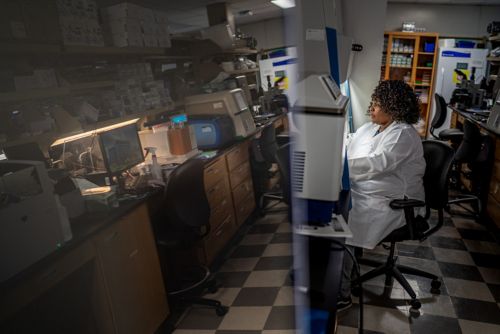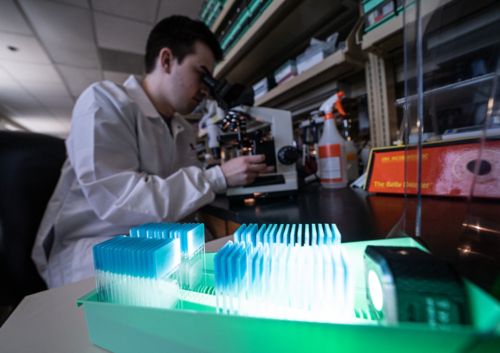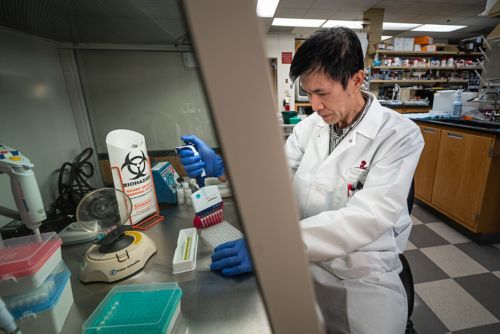St. Jude Family of Websites
Explore our cutting edge research, world-class patient care, career opportunities and more.
St. Jude Children's Research Hospital Home

- Fundraising
St. Jude Family of Websites
Explore our cutting edge research, world-class patient care, career opportunities and more.
St. Jude Children's Research Hospital Home

- Fundraising
David Ellison Lab
Defining molecular classification of pediatric central nervous system tumors and understanding the biology of childhood ependymoma
About the Ellison Lab
Pediatric brain tumors are often characterized by distinctive molecular changes. Our lab works to discover and define the changes that cause disease. We have already radically changed the classification of childhood low-grade gliomas and ependymomas. Our lab aims to translate this understanding into improved diagnosis and classification of these tumors. Ultimately, we hope to improve prognosis for these patients and discover new targets for therapies.

Our research summary
Our laboratory has a longstanding interest in defining the clinical utility of molecular alterations in pediatric brain tumors, particularly the gliomas of early childhood. In the Pediatric Cancer Genome Project at St. Jude, we served as the lead for the analysis of low-grade glioma genomics and co-lead for ependymoma genomics. Our novel findings as part of these projects have become part of the classification of central nervous system (CNS) tumors for the World Health Organization (WHO), the gold standard for tumor classification. We continue to look for the optimal ways to take our genetic findings from the Pediatric Cancer Genome Project, as well as findings from other investigators, and combine them alongside traditional histopathology in an upgraded and improved tumor classification system.

We recently launched a new line of basic research inspired by our work on ependymoma as part of the Pediatric Cancer Genome Project. We identified the molecular abnormalities of ependymoma that resulted in a complete revamping of the WHO’s brain tumor classification. As part of this project, we discovered mutations in a previously uncharacterized gene, EZHIP. EZHIP is overexpressed at high levels in a molecular type of ependymoma called posterior fossa group A.
Our laboratory conducted biological studies to prove that EZHIP is driving a major change in the epigenetics of the tumor in a very similar way to a mutation, H3 K27M, in another childhood brain tumor called diffuse pontine glioma. We are continuing our studies of ependymoma and the role of EZHIP in driving tumor formation.

Selected publications
Contact us
David W. Ellison, MD, PhD, FRCP, FRCPath, FRCPCH
Pathology
MS250
St. Jude Children's Research Hospital

Memphis, TN, 38105-3678 USA GET DIRECTIONS